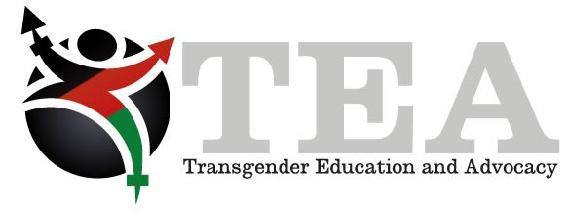
Advancing Transgender & Intersex Rights
Click here to see the original post in Voice.Global site-
Project Duration
-
-
Lead organisation
Transgender Education and Advocacy (TEA)
-
Transgender Education and Advocacy (TEA) is a human rights organisation defending and promoting the rights of transgender/transsexual and intersex people in Kenya. The TEA was formed in December 2008 and is a member of the Gay and Lesbian Coalition of Kenya (GALCK). Its vision is ‘A Kenya that respects the rights of transgender and intersex people.’ Its mission ‘To create an appropriate environment for the enjoyment of the human rights of transsexual people through awareness raising campaigns, advocacy, litigation and research initiatives.’ TEA works with various national civil society organisations to achieve its vision and mission. Additionally, TEA works with certain organisations at the international level to ensure representation of transgender issues at international fora.
Some of the most important accomplishments are three successful court cases against organisations or institutes undermining rights of transgender or transsexual people. TEA has also successfully carried out training for judicial officers (judges and magistrates) and lobbied for gender minority favourable provisions in various laws. The public is more aware and understanding of gender minoritie issues due to TEA's rigorous media campaigns and public lectures in the institutions of higher learning.
-
Organisation
Transgender Education and Advocacy (TEA) is a human rights organisation defending and promoting the rights of transgender/transsexual and intersex people in Kenya. The TEA was formed in December 2008 and is a member of the Gay and Lesbian Coalition of Kenya (GALCK). Its vision is ‘A Kenya that respects the rights of transgender and intersex people.’ Its mission ‘To create an appropriate environment for the enjoyment of the human rights of transsexual people through awareness raising campaigns, advocacy, litigation and research initiatives.’ TEA works with various national civil society organisations to achieve its vision and mission. Additionally, TEA works with certain organisations at the international level to ensure representation of transgender issues at international fora.
Some of the most important accomplishments are three successful court cases against organisations or institutes undermining rights of transgender or transsexual people. TEA has also successfully carried out training for judicial officers (judges and magistrates) and lobbied for gender minority favourable provisions in various laws. The public is more aware and understanding of gender minoritie issues due to TEA's rigorous media campaigns and public lectures in the institutions of higher learning.
-
Project
The Transgender Education and Advocacy (TEA), is a human rights organisation working towards defending and promoting the rights of transgender/transsexual and intersex people in Kenya. The Voice project ‘Transgender and Intersex Persons Rights Advocacy’ builds on the successes of the multi-disciplinary approach of the integrated legal and advocacy programme towards realising more legal protection of transgender and intersex people by challenging repressive laws and practices by state actors, improved standards of living of transgender and intersex people by enabling them hold identification, travel and academic documents that match their gender identity and presentation, and increased capacity of state and public officers to provide services to gender minorities.
-
-
The Transgender Education and Advocacy (TEA), is a human rights organisation working towards defending and promoting the rights of transgender/transsexual and intersex people in Kenya. The Voice project ‘Transgender and Intersex Persons Rights Advocacy’ builds on the successes of the multi-disciplinary approach of the integrated legal and advocacy programme towards realising more legal protection of transgender and intersex people by challenging repressive laws and practices by state actors, improved standards of living of transgender and intersex people by enabling them hold identification, travel and academic documents that match their gender identity and presentation, and increased capacity of state and public officers to provide services to gender minorities.
